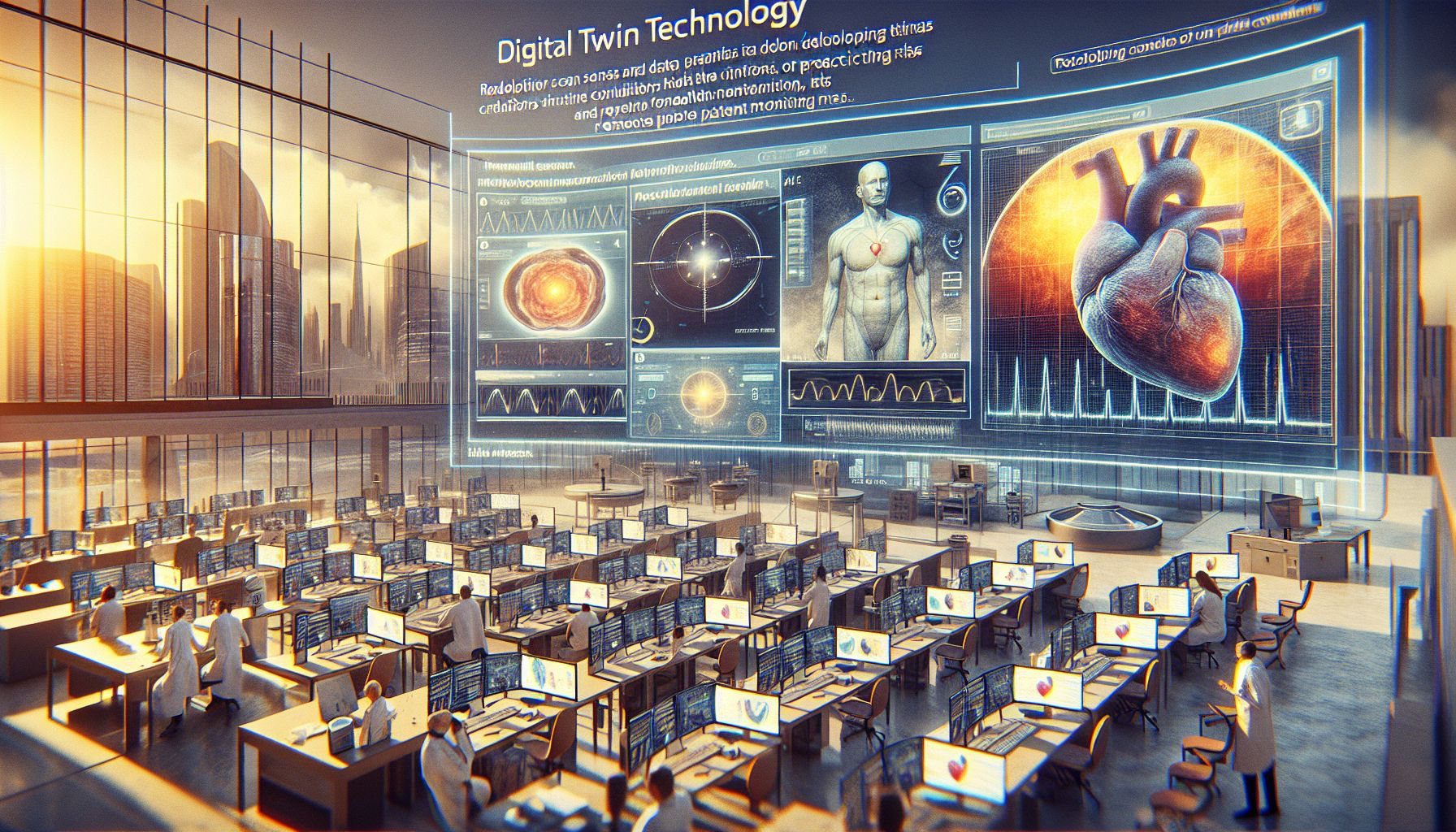Digital Twins: Revolutionizing Heart Patient Care at TU Eindhoven

Eindhoven, Friday, 8 November 2024.
TU Eindhoven researchers are developing digital twin technology to provide personalized treatments for heart patients. This innovative approach combines medical scans and real-time data to simulate health conditions, potentially predicting cardiac risks and enabling remote monitoring.
Personalized Healthcare Innovation
The digital twin technology, pioneered by TU Eindhoven researchers, is a breakthrough in personalized healthcare specifically tailored for heart patients. This technology represents a digital version of an individual, created by integrating personal and collective data. Initially utilized in industrial sectors, its expansion into healthcare marks a significant advancement in medical technology.
How Digital Twins Work
Digital twins function by combining detailed medical scans with real-time data to construct a dynamic simulation of a patient’s heart. This simulation allows healthcare providers to perform complex calculations, such as assessing heart function, thereby offering a more precise diagnosis and treatment plan. Through this technology, doctors can predict potential health risks, such as cardiac arrhythmias, following a heart attack, which could be crucial in saving lives.
Key Contributors and Their Roles
The project is spearheaded by Lukas Dekker, a cardiologist-electrophysiologist at Catharina Hospital and a professor at Eindhoven University of Technology (TU/e), alongside Carlijn Buck, a PhD candidate in cardiovascular biomechanics. Their collaborative efforts focus on enhancing healthcare efficiency and affordability by shifting from a standard care model to a personalized treatment approach. The Catharina Heart and Vascular Center, the largest heart center in the Netherlands, plays a pivotal role in this research through the COMBAT-VT project.
Benefits and Future Prospects
The adoption of digital twins in healthcare presents numerous benefits, including the ability to tailor medical care to individual patient needs, reducing unnecessary strain on healthcare systems. In the future, digital twins could facilitate remote monitoring, enabling continuous health assessments and timely medical interventions. Wearable devices like smartwatches are expected to transmit data directly to healthcare providers, enhancing patient care and outcomes. Despite challenges in creating a complete digital replica of the human body, the progress made by TU Eindhoven researchers signifies a promising step towards comprehensive digital health solutions.

